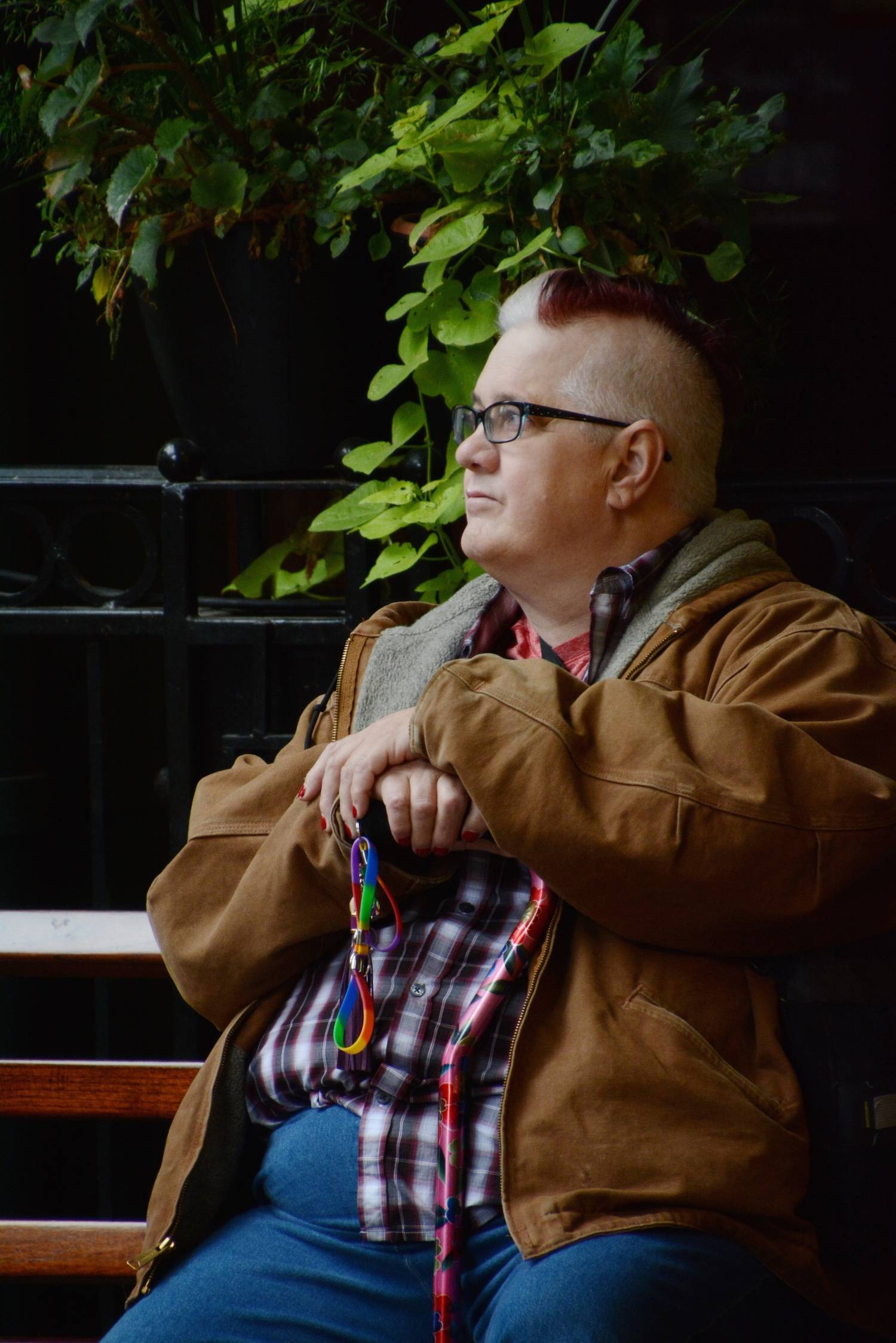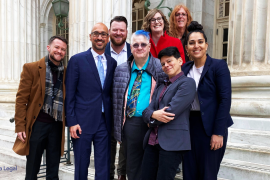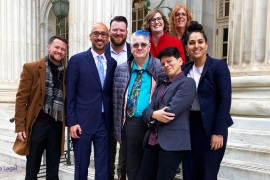A federal district court in Denver today granted Lambda Legal’s motion to reopen the case of Dana Zzyym, the intersex citizen and U.S. Navy veteran denied a passport because the U.S. State Department continues to refuse to recognize a gender marker that is neither “M” (male) nor “F” (female).
Lambda Legal had asked the court to reopen the case after the State Department refused once again to issue Zzyym an accurate passport.
“Dana has been fighting for almost three years for an essential identity document that accurately reflects who they are,” Lambda Legal Counsel Paul Castillo said. “This isn’t that hard. Several countries issue passports with gender markers other than 'F' or 'M.' And just this past month, Oregon officials unanimously voted to allow state residents to select 'X' as a gender marker for their drivers’ licenses and state IDs. And it looks like other states will soon follow suit. If Oregon can do it, why can’t the U.S. State Department?”
Dana Zzyym, who uses the gender-neutral pronouns “they,” “them” and “their,” was born with ambiguous sex characteristics.
Shortly after Dana’s birth, their parents and doctor decided to raise them as a boy. As a result, Dana underwent several irreversible, painful and medically unnecessary surgeries that didn’t work, traumatized Dana and left them with severe scarring.
Many years later, after serving six years in the U.S. Navy and then attending Colorado State University, Dana began researching surgeries and came to understand they had been born intersex. Drawing on personal experience, they began educating the public about issues facing intersex people.
Dana currently serves as associate director for Intersex Campaign for Equality (also known as the United States affiliate of the Organisation Intersex International (OII-USA)).
As part of their work, Dana was invited to attend the International Intersex Forum in Mexico City in October, 2014, at which time Dana applied for a U.S. passport.
The application requires that the applicant select a gender marker of either "male" or "female." It also requires first-time applicants to submit evidence of citizenship, such as a birth certificate, which in Dana’s case lists their sex as “unknown.”
Notwithstanding the information on their birth certificate and the fact that Dana’s doctors with the U.S. Department of Veterans Affairs confirm their gender as intersex, Dana’s application for a passport was denied.
In October, 2015, Lambda Legal filed a lawsuit in the U.S. District Court for the District of Colorado.
The suit asserted that the U.S. State Department violated the due process and equal protection components of the Fifth Amendment to the U.S. Constitution, as well as the federal Administrative Procedure Act, by denying Dana a passport that accurately reflects their gender.
On November 22, 2016, the Court issued its ruling, in favor of Zzyym, which stated that the earlier decision to deny Zzyym an accurate passport without a male or female gender marker was arbitrary and capricious. The Court directed the State Department to reconsider.
The State Department issued a second denial last month.
“The State Department’s inaction, and subsequent groundless denial, continues to prevent Dana from traveling and from doing their job as associate director of the Intersex Campaign for Equality and to advocate for the rights of intersex individuals both here and abroad,” Castillo added.
“My work as an advocate for the intersex community is incredibly important to me, and I’m unable to do my job because I don’t have a passport,” Zzyym said. “The State Department is in effect forcing me to lie about who I am, and I’m not going to do that. No one should be forced to lie about who they are.”
Several countries currently issue passports with gender markers other than “F” (female) or “M” (male), including Australia, India, Malta, Nepal and New Zealand.
Most countries that offer a third gender marker on their passport use the non-specific “X” because it is recognized by the International Civil Aviation Organization (ICAO), a United Nations agency that sets forth international travel document standards.





